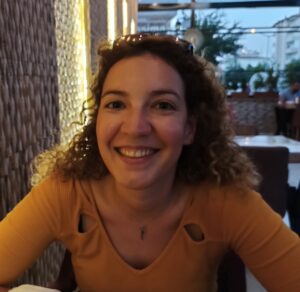Population Research Discovery Seminars

CSDE Seminar - Culinary Bonds: How Everyday Food Practices Foster Belonging Among Syrian Refugee & Turkish Host Women in Gaziantep - Ayda Pomeshikov
Ayda Pomeshikov, PhD Candidate, Near and Middle Eastern Interdisciplinary Studies, University of Washington
Parrington Hall Room 360
To Join By Zoom: Register HERE
05/23/2025
12:30-1:30 PM PT
360 Parrington Hall
Co-Sponsor(s):
Since 2011, nearly 3.5 million Syrian refugees have resettled in Turkey. While a new government is emerging in Syria, return remains an unlikely or unsafe prospect for many, and a significant number of refugees intend to continue their lives in Turkey. Despite limited pathways to citizenship, Syrians have established diasporic communities and formed partial bonds with local populations. In the context of this protracted displacement, local faith-based humanitarian and charity organizations have become influential actors—especially in Southeastern Turkey—providing both emergency relief and long-term social support. These organizations’ humanitarian discourses have gained prominence for their perceived effectiveness in mobilizing resources and addressing refugees’ social and material needs.
Culinary Bonds explores how everyday food practices among refugee and host women in Southeastern Turkey contribute to processes of belonging. While many of these women are connected to humanitarian organizations, their collaboration and solidarity extend far beyond formal aid structures. Through daily acts of service and care—especially in their kitchens—women engage in shared labor that challenges the conventional donor–recipient dynamic. This presentation asks: How do mundane, collective activities such as cooking and the ritualized consumption of food cultivate reciprocity and belonging among host and refugee women—across boundaries of citizenship, ethnicity, and language?
The presentation highlights the active civic agency of Syrian refugee and Turkish volunteer women. Though their efforts often unfold in domestic spaces and remain unrecognized by formal metrics, they play a vital role in reimagining a shared cultural past within the culinary geography of Southeastern Turkey—and in envisioning a common future. I argue that diasporic belonging is enacted through practices of hospitality and care, particularly through cooking, which serves as a medium for building community solidarity.
This research is grounded in ethnographic fieldwork conducted in Gaziantep, Turkey, between May 2019 and January 2021. It employs a multifaceted qualitative approach, including participant observation at humanitarian events, semi-structured interviews with organizational managers, in-depth interviews with volunteers and donors, and life-history interviews with Syrian refugee women.
Ayda Apa Pomeshikov is a Ph.D. candidate in the Interdisciplinary Ph.D. Program in Near and Middle Eastern Studies at the University of Washington. She holds an M.A. in Transcultural Studies from Heidelberg University in Germany. Her research focuses on forced migration, refugee and diaspora studies, comparative humanitarianism, and gender and sexuality in Muslim-majority contexts. Her dissertation, The Prophet Was a Refugee Too: Syrian Refugee Women’s Search for Belonging in Turkey, is based on two years of ethnographic fieldwork conducted between 2019 and 2021, supported by a United States Institute of Peace Fellowship.